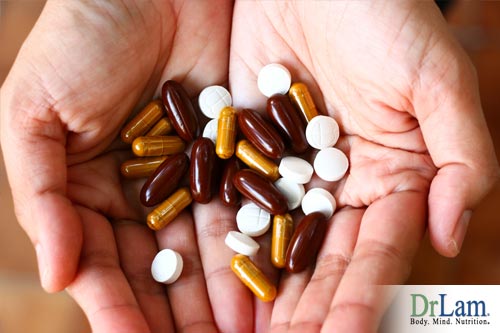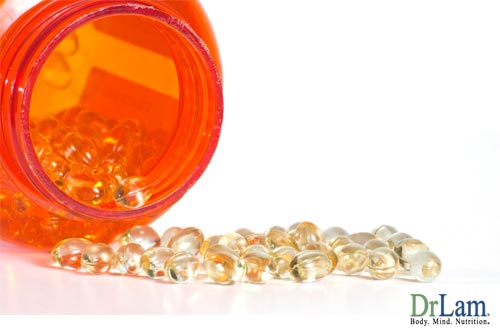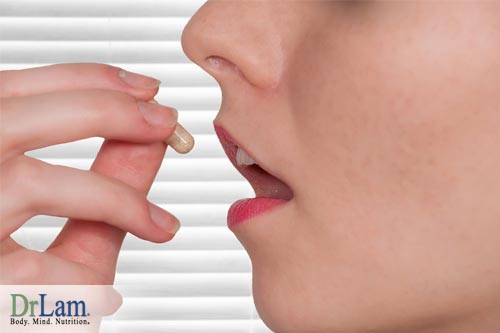 According to a report in the Journal of the American Medical Association (2002;287:3127-9), all grown-ups should take a daily multivitamin. Two leading doctors, from Harvard University published this new report. This suggestion was put forth after much research was conducted. The research showed that people who take a multivitamin or anti free radical supplement each day reduced their chances of getting chronic diseases such as heart disease, cancer and osteoporosis.
According to a report in the Journal of the American Medical Association (2002;287:3127-9), all grown-ups should take a daily multivitamin. Two leading doctors, from Harvard University published this new report. This suggestion was put forth after much research was conducted. The research showed that people who take a multivitamin or anti free radical supplement each day reduced their chances of getting chronic diseases such as heart disease, cancer and osteoporosis.
An anti free radical supplement contains concentrated antioxidants. These help to stabilize free radicals, which are produced through everyday metabolic activity and because of exposure to toxins like air pollutants. Free radicals are highly reactive molecules, or single atoms with unpaired electrons, looking for a mate to stabilize themselves. They steal an electron from the first molecule they encounter, perhaps a cell wall or a strand of DNA. Antioxidants are molecules that donate extra electrons to free radicals, thereby neutralizing them.
If free radicals aren’t deactivated, they move through your body, causing damage to cells. And if your body’s ability to regulate them breaks down, it can result in oxidative stress. Tissue degradation can begin, and disease sets in. An excess of free radicals has been implicated in the development of cardiovascular disease, Alzheimer's disease, Parkinson's disease and cancer, among others.
A certain number of free radicals are essential for life as the body can’t turn air and food into chemical energy without producing them. Free radicals also attack foreign invaders as part of the immune system. But when they get out of control, they can become dangerous, which is why reducing their numbers is so important.
Some of the most important antioxidants for reducing free radicals include:
There are antioxidants in the food you eat, but they can also be taken in supplement form. However, you need to be careful with supplements as it is easy to get too much, which can cause the opposite effect of what you’re looking for.
This idea of using an anti free radical supplement or multivitamin daily is still relatively new in the conventional medical arena. However, attitudes are beginning to change and more doctors are beginning to recognize its benefits. In the past, most doctors said that vitamin supplements were not necessary because they believed that the normal American diet provided all the essential nutrients to maintain good health and prevent diseases. Today, as the Harvard researchers point out, this opinion is no longer defensible with the rising number of chronic diseases.
The fact that researchers have now proven that anti free radical supplement and vitamin use can prevent several common chronic diseases goes to show that the average American diet fails to provide the optimal amounts of nutrients. The heavily processed, sugary foods, and lack of natural fruits and vegetables that make up the modern diet can and does lead to vitamin deficiencies and malnutrition.
While anti free radical supplement and vitamin use can help to correct certain deficiencies in our bodies, it is not an adequate substitute for a good diet. In other words, you must still maintain a good and healthy diet while taking in extra nutrients. Whole, unprocessed foods contain a wide array of beneficial substances besides vitamins, such as carotenoids, flavonoids, natural antioxidants and other unidentified compounds that act synergistically. The researchers therefore suggest that the best approach is to eat properly and to take an anti free radical supplement or multivitamin.
The researchers also point that the iron in supplements may not be suitable for many men, non-menstruating women and a small proportion of the population with an inherited intolerance to it (hemochromatosis). These people should consult their family doctors on whether it is appropriate to include iron in their multivitamin or anti free radical supplement.
 The job of antioxidants is to neutralize free radicals, and any anti free radical supplement will have antioxidants. Studies have indicated fairly consistently that having too few antioxidants is bad for the body. Here are some of the results of studies on the effects of antioxidants:
The job of antioxidants is to neutralize free radicals, and any anti free radical supplement will have antioxidants. Studies have indicated fairly consistently that having too few antioxidants is bad for the body. Here are some of the results of studies on the effects of antioxidants:
It is important to note that although these epidemiological studies suggest an association between antioxidants and good health, this does not mean that the antioxidants directly caused the improved health. Furthermore, it should not be concluded that taking an antioxidant or anti free radical supplement improves health in and of itself without a concurrent healthy lifestyle.
 Taking an anti free radical supplement can also be quite dangerous, particularly if you take too much or take the wrong type. Some of the antioxidants that may have harmful effects include:
Taking an anti free radical supplement can also be quite dangerous, particularly if you take too much or take the wrong type. Some of the antioxidants that may have harmful effects include:
Studies have shown that Finnish male smokers were 18 percent more likely to develop lung cancer after taking a beta-carotene supplement. This was reported in NEJM in 1994.
In a second study, 2,000 men took vitamin E alone, beta-carotene alone, both, or a placebo after suffering their first heart attack. The group taking both vitamin E and beta-carotene was about twice as likely to die from a second heart attack or heart disease as the placebo group, and the vitamin E-only group was about 1.5 times as likely to die.
Studies have also shown that beta-carotene had no effect on certain types of cancer, atherosclerosis, or heart effect rates over time. However, it may increase the risk of bladder cancer.
This antioxidant may interfere with how your body adapts to exercise and eliminate some of the benefits of exercising.
In high doses, vitamin A may increase the risk of birth defects.
Vitamin E may also prevent your body from adapting to exercise and reduce its positive benefits.
 Criticisms naturally flowed back and forth, with physicians supporting anti free radical supplement use finding methodological errors in studies that cast doubt on pills; and those against anti free radical supplement use finding similar problems in the work that seemed to contradict their findings.
Criticisms naturally flowed back and forth, with physicians supporting anti free radical supplement use finding methodological errors in studies that cast doubt on pills; and those against anti free radical supplement use finding similar problems in the work that seemed to contradict their findings.
Most likely, all these studies might be absolutely right, pointing to the complexity of the matter - that we don't fully understand the intricate relationship between certain types of antioxidant or anti free radical supplement use and certain types of free radicals at different moments over the course of one's lifetime.
Each antioxidant is different. They work in different places, at different times, and in different dosages. Blanket statements or broad conclusions drawn from any study on either camp will not stand up to scrutiny. There is no way to know how much antioxidant is too much and how much is too little.
That’s why it’s usually best to try to get all the antioxidants you need from the food you eat. This helps to prevent overdosing and ensures that the nutrients are in a natural form that your body can use properly. Antioxidants also work best in combination with other nutrients, and you can only find these natural combinations in foods.
Here are some foods that are high in antioxidants to try to include more in your diet.
Vegetables that contain lots of antioxidants include:
Beans especially high in antioxidants include:
Some nuts that contain antioxidants are:
Many fruits contain lots of antioxidants. In fact, you can eat practically any fruit and get benefits. Some of the best are:
Whole grains also contain a lot of antioxidants, including:
 Free radicals can be both good and bad for your body, and antioxidants in very high doses (higher than optimum dose) may do the body harm. That’s why you need to be careful and talk to your doctor before you try taking an anti free radical supplement. If you’re really struggling to get all the nutrients you need from your diet, here’s what to do:
Free radicals can be both good and bad for your body, and antioxidants in very high doses (higher than optimum dose) may do the body harm. That’s why you need to be careful and talk to your doctor before you try taking an anti free radical supplement. If you’re really struggling to get all the nutrients you need from your diet, here’s what to do:
If you need help balancing your nutritional needs then talk to our team by clicking here or giving us a call on +1 (626) 571-1234.
© Copyright 2020 Michael Lam, M.D. All Rights Reserved.
